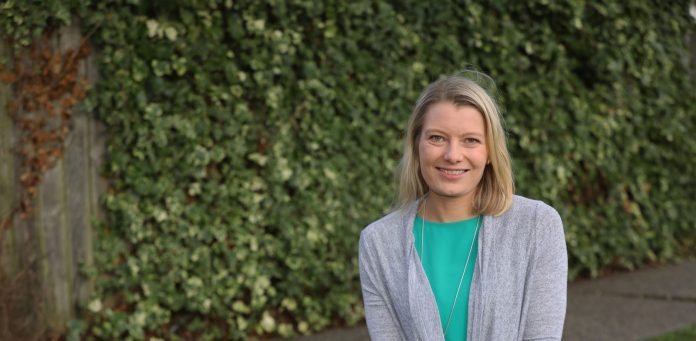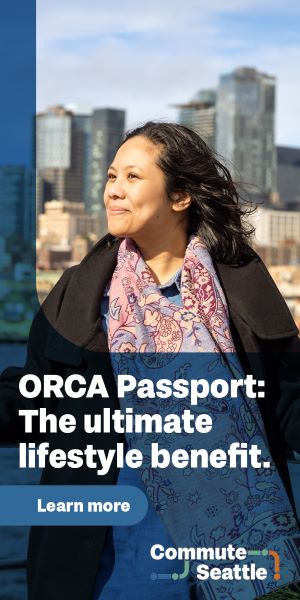The Urbanist Elections Committee based our endorsement decisions on questionnaires we wrote and invited state legislature candidates in the Seattle metropolitan region to fill out. We followed up on those questionnaire responses with Zoom interviews to answer lingering questions. Below are the responses by Sarah Reyneveld, who is running in Legislative District 36, Position 2–a seat vacated by Rep. Gael Tarleton’s run for Secretary of State.
What lessons about government revenues and fiscal priorities from the wake of 2008 would you apply in responding to the Covid-19 crisis? (200 words or less)
Washington has the most regressive state tax system in the nation. The legislature is facing a $7 billion-dollar revenue shortfall between now and 2023. The time to make our tax structure fairer is now. Our economic recovery is in part dependent on the legislature’s ability to fix our upside tax code and make the wealthiest Washingtonians pay their fair share. We cannot tackle our incoming budget crisis from the “cut” side – we have to tax the wealthiest Washingtonians and big corporations to raise revenue. The 2008 recession highlighted how the super-wealthy continue to expand their wealth while working families struggled to keep a roof over their heads. I will fight to raise revenue progressively and fairly to save our school budgets, healthcare budgets, and other essential services for all of our community members. As a legislator I will commit to working with my colleagues to pass new progressive revenue next session and invest in vital safety net programs and infrastructure that will grow our economy.
Would you vote for a bill that ends the ban on rent control in Washington? Why or Why not? (50 words or less)
Yes. The 36th District has struggled with housing affordability for years which has compounded our homeless crisis. I will advocate for solutions to address this crisis including lifting the prohibition on rent control to give localities the authority to stabilize our housing market.
What role do you see the state playing in enacting land use reform, and what should that reform prioritize? (200 words or less)
The State should be a leader in reforming land use while also allowing for some community flexibility. I generally support legislation statewide which would enact land-use reform to allow greater density and make sure that more options are available for homebuyers and renters such as accessory dwelling units (ADUs), duplexes, triplexes, and quads, particularly around transit-oriented development. I believe that the state should prioritize the accessory dwelling unit legislation introduced by Rep. Gregerson as it is an important first step towards removing statewide restrictions, creating greater density, and addressing the climate crisis.
What should be the major components of a climate package? (50 words or less)
Washington State must embrace a Green New Deal by making a just and equitable transition to a clean energy economy by: Increasing public transportation options and making our transportation sector cleaner; Increasing the energy efficiency of our buildings; Holding corporate polluters accountable by imposing a fee on carbon.
What should be the top strategies for the state to fix the cycle of segregation, disinvestment, gentrification, and unaffordable housing in our cities? (200 words or less)
I believe housing is a human right and as a legislator I will fight to invest in real solutions to fix the cycle of segregation, disinvestment, gentrification and unaffordable housing in our cities. My top strategies will be: Keeping people housed by increasing tenant protections such as requiring a just cause to evict tenants and expanding rental assistance; Lifting the prohibition on rent control to allow cities to cap rent and/or passing rental stabilization legislation similar to Oregon which would limit rental increases to 7 percent per year plus inflation; Growing the supply of affordable housing and permanent supportive housing by investing in Housing Trust Fund and giving local jurisdictions the authority to create more affordable and workforce housing through expanding taxation/bonding authority to tax businesses, including, but not limited to Rep. Macri’s legislation to provide counties with authority to tax businesses and generate more revenue to construct housing and provide rental assistance; Ending the criminalization of poverty, homelessness, supportive housing, treatment beds with wrap-around services, diversion programs, and more therapeutic treatment alternatives to incarceration; Passing progressive tax reform and reduce dependence on property tax which is disproportionately burdensome to working families and fixed-income seniors.
What’s your roadmap to fixing educational inequities in Washington state? How can Washington state comply with its constitutional duties regarding education? (200 words or less)
With state revenues in sharp decline due to the COVID-19 pandemic, we must redouble our efforts to invest more in our public schools, not less. For too long school districts across the state have been forced to rely on voter-approved tax levies to supplement a lack of basic education funding which disproportionately impacts working families and marginalized communities. This must end. In the legislature I will fight for: Ample, equitable and sufficient revenue for basic education; Supportive classrooms with reduced class sizes and sufficient teachers, mental health counselors, nurses, librarians, family support workers, and other support staff consistent with the Washington voter-approved Initiative 1351; Increased funding for social-emotional learning, the arts, and supports for student learning tailored to the needs and learning styles of the individual child; Fully fund special education, including an increased special education multiplier, and removal of the cap from special education services; Establishing a culturally inclusive ethnic studies curriculum that invites community input throughout the state; Promoting equity, combating racism and discrimination in our schools, and closing the opportunity gap; Keeping students out of the criminal justice system by ending the school to prison pipeline by passing legislation to stop criminalizing status offenses such as truancy.
Do you think Washington state should have an income tax? If yes, what is the legislative path? If not, would you pursue any tax reform? (100 words or less)
Yes. I will work with my colleagues in the legislature and leaders such as Rep. Noel Frame and Senator Joe Nguyen who serve on the tax reform workgroup to bring a progressive income tax proposal with reductions in sales tax and property tax forward to the legislature for a vote. If it fails, I want to help build a coalition to pass an initiative. Either of these would be challenged at the courts, but it is more likely now according to my favorite law school professor Hugh Spitzer that if the legislature enacted an income tax it would be upheld.
While California and Oregon have passed a clean fuels standard aiming to meet their climate goals, Washington did not, as the bill stalled out last session. Would you vote for it? If not, what is the route to meeting our climate goals? (150 words or less)
Yes, as an environmental champion and citizen advocate I advocated for the passage of the Clean Fuel Standards legislation in 2019 and 2020. Passage of a Clean Fuel Standard is a top priority of mine and I will advocate and fight to ensure that this bill comes up for a vote and is passed into law next session. A long-time environmental advocate I am the only candidate in this race to be endorsed by the Washington Conservation Voters who have championed this legislation.
What percentage of the state’s transportation budget should be for alternatives to cars, such as transit, biking, and pedestrian infrastructure? (100 words)
A much larger percentage than is currently allocated! The vast majority of our state’s transportation budget funds the operation of state transportation agencies, construction and preservation of state highways and roads. Washington State funding sources such as the gas tax do not support investment in alternatives to cars because they are constrained. This needs to change. The state is at a critical turning point. In order to invest in transit, biking and pedestrian infrastructure our state must pass sustainable, equitable and environmentally friendly revenue sources that won’t burden low-income and marginalized communities.
What should be a higher priority: electrifying personal vehicles or reducing the number of trips made in personal vehicles? Explain how to achieve your priority. (50 words).
Both, but my priority would be reducing the number of trips made in personal vehicles. I will achieve this by passing a more sustainable, equitable and environmentally friendly revenue source to invest in public transportation such as an: Air Quality Surcharge fee Road Usage Charge Carbon taxes/cap and trade.
The Urbanist Elections Committee’s Take
Read our endorsements to see why we endorsed Liz Berry despite some good responses from Reyneveld.

Elections Committee
The Urbanist was founded in 2014 to examine and influence urban policies. We believe cities provide unique opportunities for addressing many of the most challenging social, environmental, and economic problems. We serve as a resource for promoting urbanism, increasing political participation, and improving the places we live. The Elections Committee consists of community volunteers and staff members of The Urbanist and is a standing body representing the political values of our organization.



